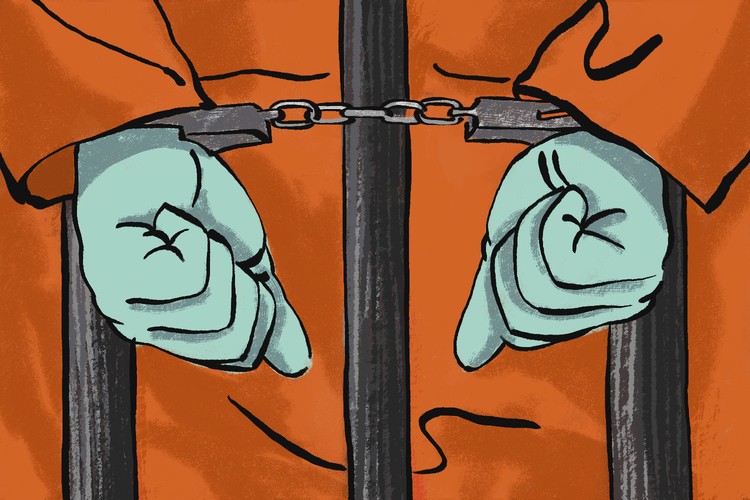
11 December 2023
Imprisonment should be the norm in corruption cases, a high court judge has said. Illustration: Lisa Nelson
A Northern Cape High Court judge has cautioned that direct imprisonment must be the norm when sentencing people convicted of corruption.
Judge Mpho Mamosebo, with Acting Judge AD Olivier concurring, described as “laughable” a sentence imposed by a lower court on an Upington traffic officer, who demanded a R1,000 bribe from a motorist. The officers were fined R10,000, payable in monthly instalments of R1,000, or two years imprisonment.
On appeal by the provincial Director of Public Prosecutions (DPP), the court said the sentence was “fatally flawed and not judicial”.
The court increased the sentence to a fine of R60,000, to be paid by the end of January 2024, or to three years imprisonment, with Judge Mamosebo noting that traffic officer Oscar Bongela had already paid a portion of the fine previously imposed.
However, she said, jail should be the norm.
“I wish to issue this serious warning. This sentencing approach must in no way serve as a precedent. Direct imprisonment ought to be the norm.”
Bongela, who had been a traffic officer for 17 years at the time, was convicted along with colleague Lebogang Tosa of corruption in the local regional court in September 2020. They were both fined R10,000 or, in default of payment, to two years imprisonment.
They were also given three-year, wholly suspended sentences.
The DPP, in the appeal, said the sentences were shockingly lenient and ignored precedent in such matters.
Tosa died before the DPP’s appeal was heard.
Bongela did not participate in the appeal.
According to the record before the court, Bongela was senior to Tosa. They were posted near Upington Main Road when they pulled over Robert Doncaster, who was rushing his wife, who was in labour, to hospital.
They asked him for a bribe of R1,000.
Doncaster drove into town saying he was going to get the money. Instead he went to the police, who swiftly set up a trap.
The police gave Doncaster marked money and fitted him with a recording device.
He paid the money to Tosa. Tosa kept R700 and gave Bongela R300.
After the police pounced, all of the money was recovered.
Judge Mamosebo, in her recent ruling, said “mystifyingly” Bongela was still employed as a traffic officer. At the time of the trial he had been earning R23,000 a month.
The State had pointed out that both Bongela and Tosa had been paid on the day they asked Doncaster for a bribe.
Judge Mamobsebo said the magistrate had not considered relevant case law.
“Corruption, as expressed by so many courts, is a cancer to be dealt with harshly,” she said.
The magistrate had overemphasised the traffic officers’ personal circumstances and downplayed the seriousness of the offence and its impact on society.
“It was inconsiderate and even callous of them to demand a bribe from a person who was clearly acting out of necessity caused by his child’s impending birth,” the judge said.
The fine of R10,000 “was laughable”.
“I am of the view that the monetary aspect of the punishment should be increased steeply to signify the turpitude of the offence committed. I have also had regard that Bongela has retained his employment throughout. It is up to him to devise some means to pay the fine,” she said, saying if he defaulted, he must serve the time.
“The magistrate was far too generous.”
She ordered Bongela to pay a fine of R60,000 and to pay the full balance by 31 January 2024 or serve three years in jail.